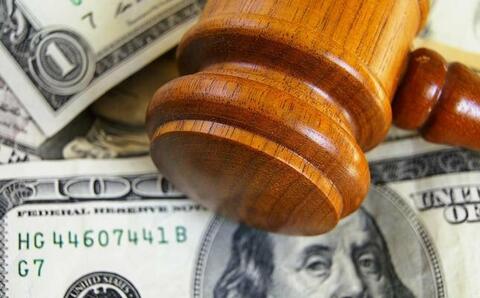Four people who participated in a scheme to defraud New Jersey state health benefits programs and other insurers by submitting fraudulent claims for medically unnecessary prescriptions have been sentenced to prison, Acting U.S. Attorney Rachael A. Honig announced today.
According to Acting U.S. Attorney Honig, Michael Pilate, 43, of Williamstown, formerly a guidance counselor with the Pleasantville public school district, and Tara LaMonaca, 47, of Linwood, formerly a pharmaceutical sales representative, were sentenced today to 18 months in prison and eight months in prison, respectively.
Acting U.S. Attorney Honig said that George Gavras, 40, formerly a pharmaceutical sales representative from Moorestown, and Andrew Gerstel, 43, formerly a pharmaceutical sales representative from Galloway, were sentenced to 13 months in prison and 12 months and one day in prison, respectively.
According to documents filed in this case and statements made in court:
Compounded medications are specialty medications mixed by a pharmacist to meet the specific medical needs of an individual patient.
Although compounded drugs are not approved by the Food and Drug Administration (FDA), they are properly prescribed when a physician determines that an FDA-approved medication does not meet the health needs of a particular patient, such as if a patient is allergic to a dye or other ingredient.
From January 2015 through April 2016, Pilate, LaMonaca, Gavras and Gerstel, and others served as recruiters in the conspiracy.
They persuaded individuals in New Jersey to obtain very expensive and medically unnecessary compounded medications from an out-of-state pharmacy, identified in the informations as the “Compounding Pharmacy.”
The conspirators learned that certain compound medication prescriptions – including pain, scar, antifungal, and libido creams, as well as vitamin combinations – were reimbursed for thousands of dollars for a one-month supply.
The conspirators also learned that some New Jersey state and local government and education employees, including teachers, firefighters, municipal police officers, and state troopers, had insurance coverage for these particular compound medications.
An entity referred to in the informations as the “Pharmacy Benefits Administrator” provided pharmacy benefit management services for the State Health Benefits Program, which covers qualified state and local government employees, retirees, and eligible dependents, and the School Employees Health Benefits Program, which covers qualified local education employees, retirees, and eligible dependents.
The Pharmacy Benefits Administrator would pay prescription drug claims and then bill the State of New Jersey for the amounts paid.
The conspirators recruited public employees and other individuals covered by the Pharmacy Benefits Administrator to fraudulently obtain compounded medications from the Compounding Pharmacy without any evaluation by a medical professional that they were medically necessary.
In return, the pharmacy paid the conspirators a percentage of each prescription filled and paid by the Pharmacy Benefits Administrator, which was then distributed to other members of the conspiracy.
Once they had recruited an employee covered by the Pharmacy Benefits Administrator, the conspirators would obtain the employee’s insurance information and fill out a Compounding Pharmacy prescription form.
They would select the compounded medications that paid the most without regard to their medical necessity.
They would then get the prescriptions signed by doctors and other qualified health professionals who never saw the patients or evaluated whether the patients had a medical necessity for the compounded medication.
The prescriptions were then faxed to Compounding Pharmacy, which filled the prescriptions and billed the Pharmacy Benefits Administrator.
According to the informations, the Pharmacy Benefits Administrator paid Compounding Pharmacy over $50 million for compounded medications mailed to individuals in New Jersey.
As part of their plea agreements, Pilate must forfeit $392,684 in criminal proceeds and pay restitution of $3.49 million; LaMonaca must forfeit $89,855 in criminal proceeds and pay restitution of $523,831; Gavras must forfeit $204,002 in criminal proceeds and pay restitution of $677,815; and Gerstel must forfeit $184,389 in criminal proceeds and pay restitution of $483,946.
